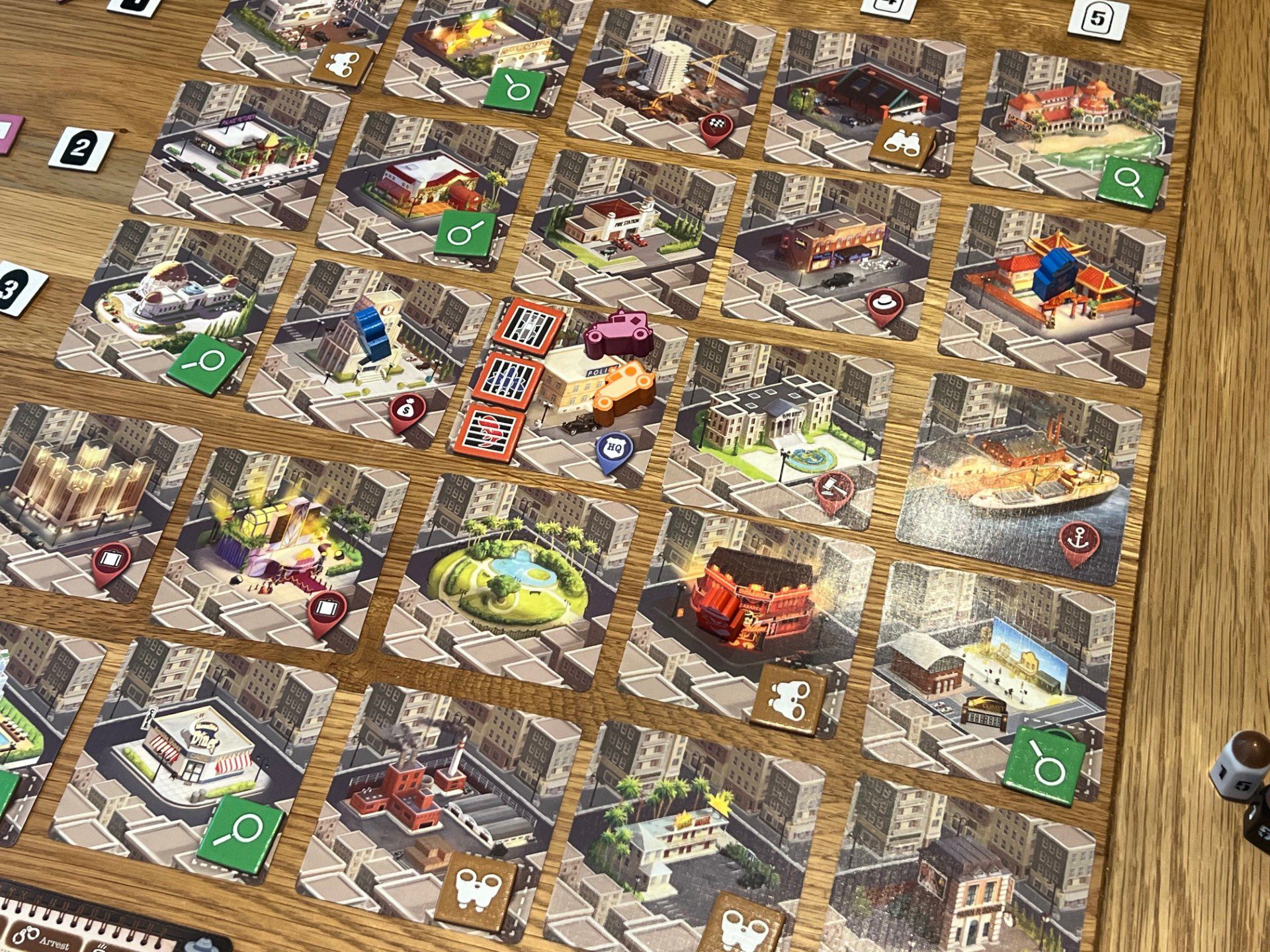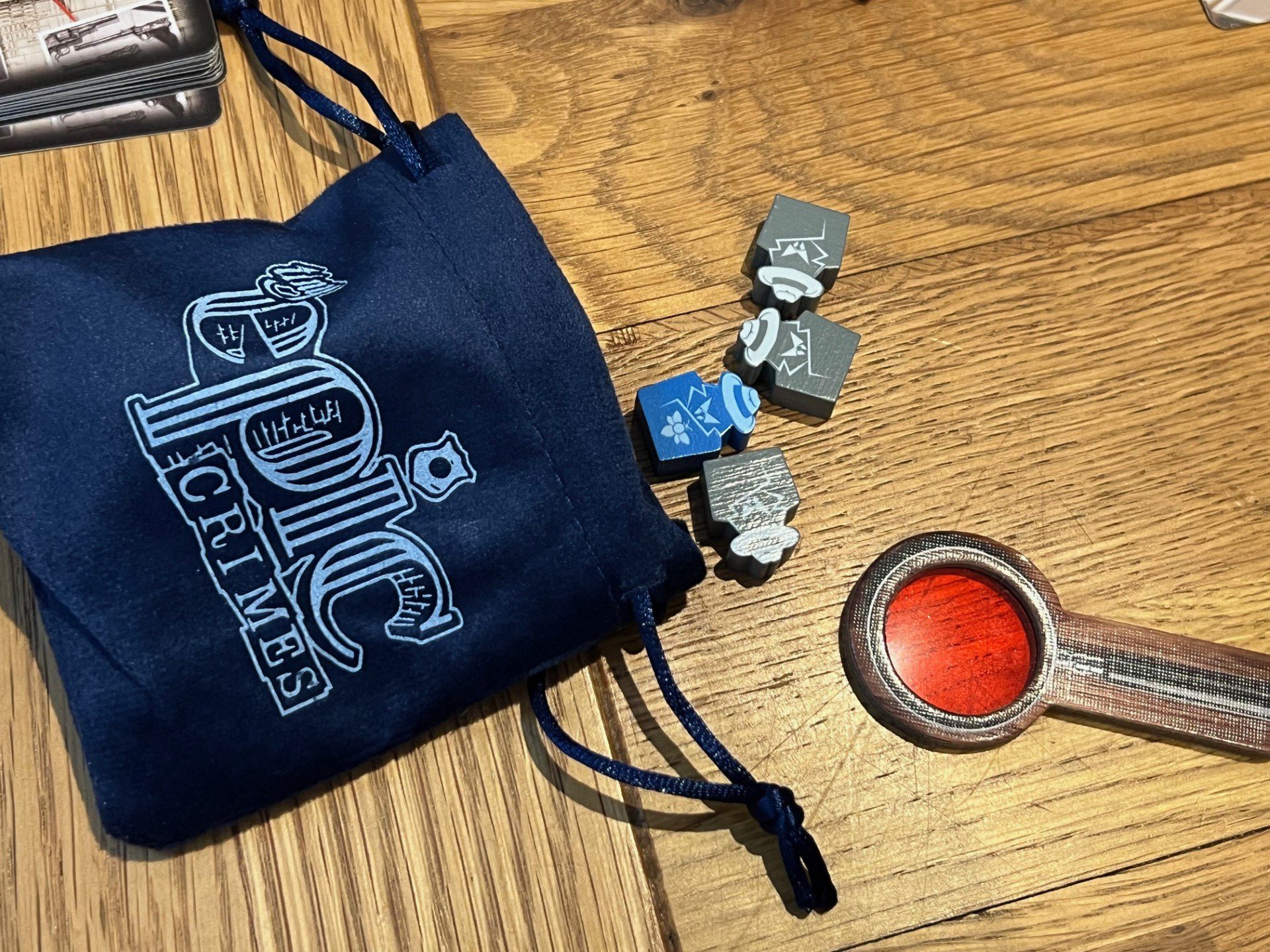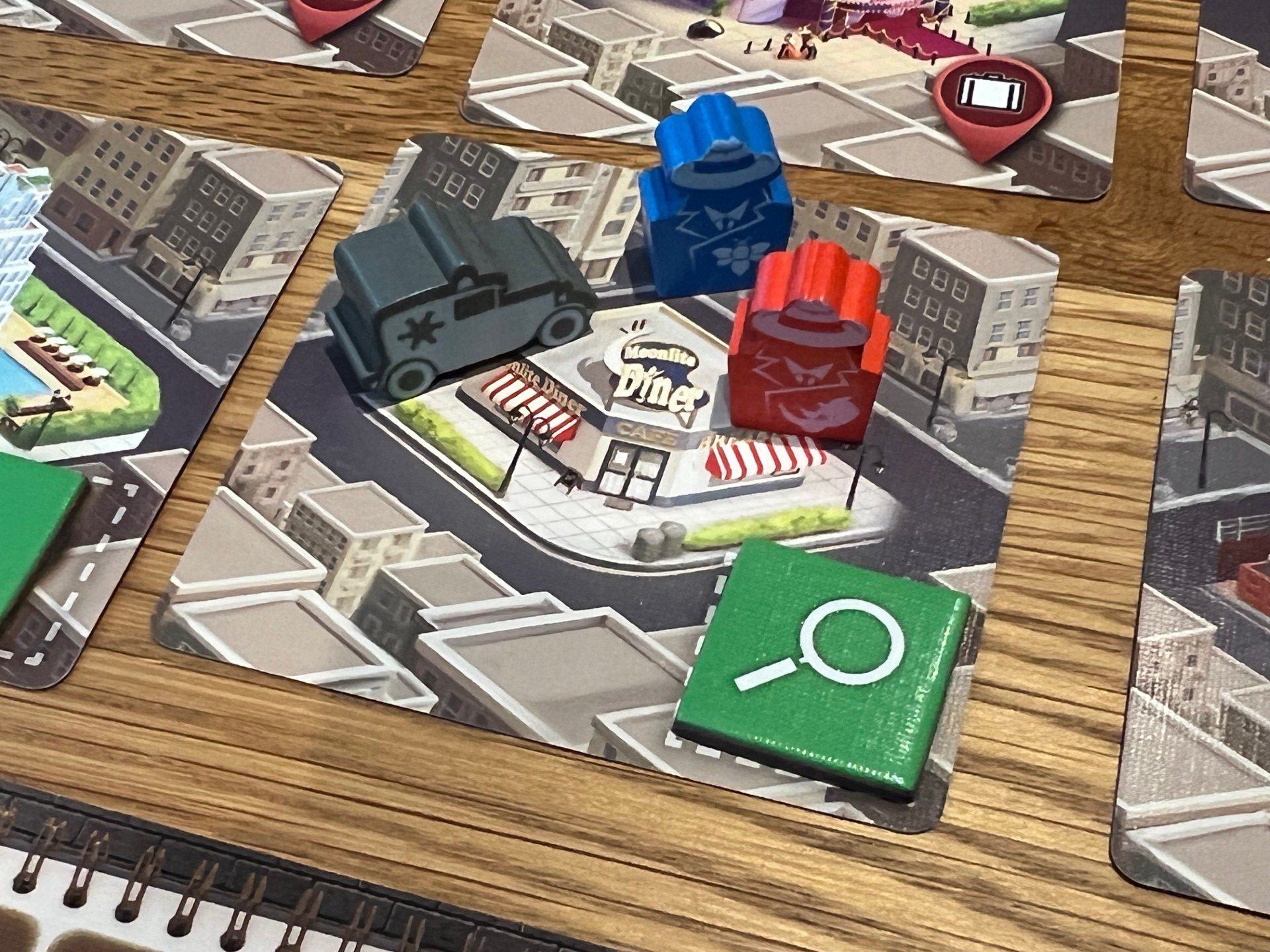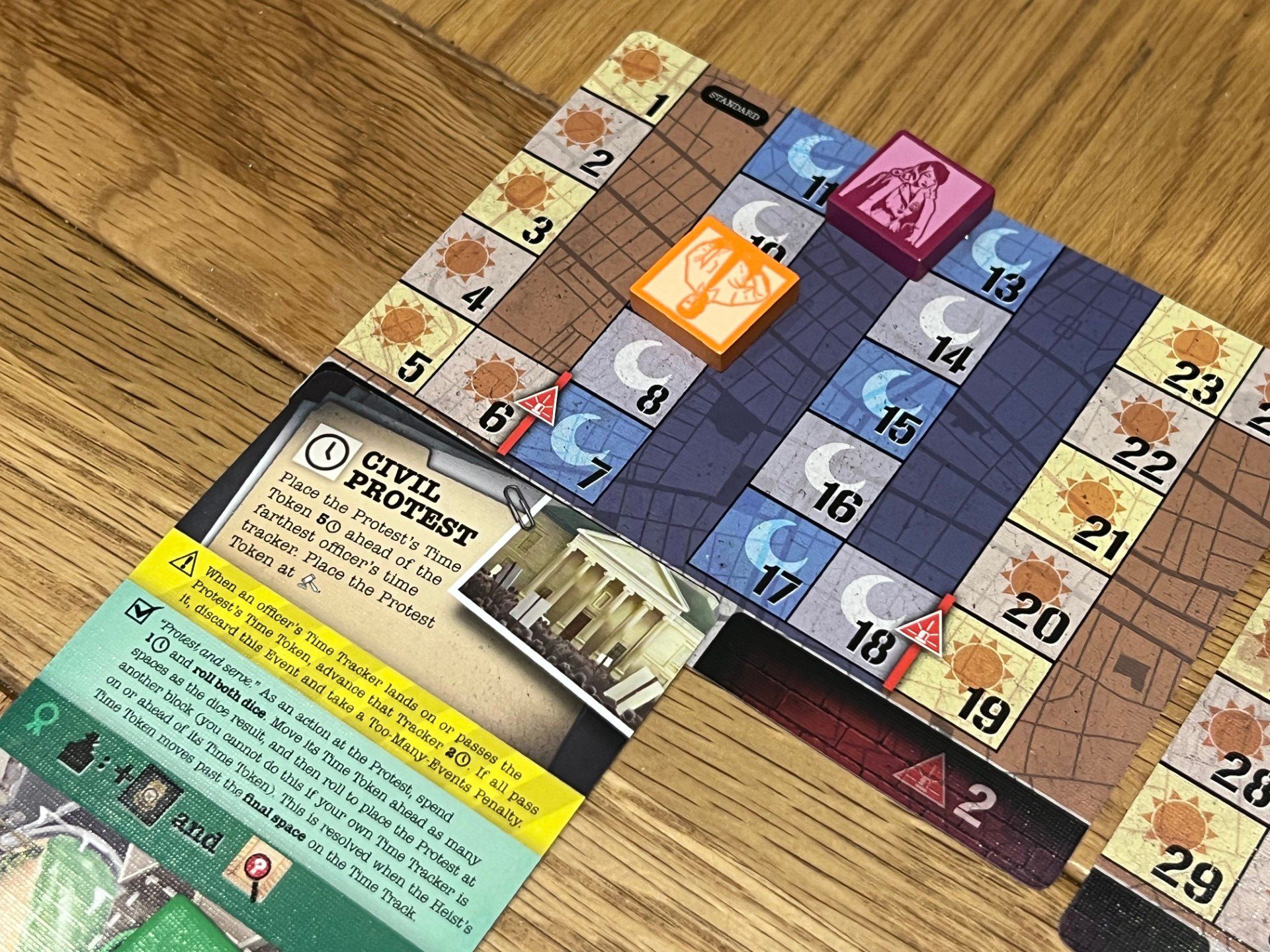Having already reviewed numerous Tiny Epic games — including Tiny Epic Quest, Tiny Epic Pirates and Tiny Epic Dinosaurs — I should no longer be surprised at how well these games live up to the Tiny Epic series moniker. In the latest instalment, Tiny Epic Crimes, players will act as detectives who are under pressure to shake down informants, arrest mobsters and solve a serious murder. They must do this all while managing their time and facing randomly drawn distractions.
Tiny Epic Crimes has a lot going on. Players search for clues, arrest criminals, handle randomised events and engage in a Cluedo (or Clue) style whodunnit to determine the master criminal in each game. But where Cluedo is a pretty grim mix of random and procedural, Time Epic Crimes is a challenging puzzle — both in terms of how best to manage your turns, and relating to solving the main crime.

As always with the Tiny Epic games, Time Epic Crimes comes in a small box, but unfolds into an expansive game made up of randomised city tiles that feel as large as almost any regular sized board game. A number of additional components add to the high quality feel, with loads of suspect cards, tokens, meeples for the local criminals, bullet dice and wooden cars for the cops.
Better still is the “Epic Decoder System” which is basically a system of envelopes and a magnifying glass that allow the players to seed (and thus randomise) the main crook each game, whilst also being able to obtain vital information from other cards later. In this way, a player may learn which criminals are not the main crook (those with an alibi) as well as other vital information such as what weapon they may have used.
This means that when the game begins you have a lot to think about.. Managing movement around the city, arresting suspects and collecting clues is all necessary, and with a core mechanic based all around time, the choice can be difficult. Each player only has 48 hours to spend on their turns, with some taking up to four hours to move and then take an action.

The pressure to make the right choice is made worse by the fact that events often need to be resolved by multiple people — and they may not advance your progress towards capturing the main suspect. In some cases, the players need to discuss capturing all criminals of a certain group (for example) and if one player spends their turn doing so but the next doesn’t bother, then everyone still gets penalised for failing.
As Time Epic Crimes comes with both a competitive and a cooperative mode, the events have varying degrees of impact. In competitive mode, this can be a problem in some games, but it’s less the case in cooperative games because everyone is clearly incentivised to work together. Having said that, the 48-hour timer is probably the most challenging thing about Time Epic Crimes, and certainly bears discussion on its own.
I have honestly not seen one game of Time Epic Crimes reach the conclusion with a player (or players, in cooperative mode) being certain as to who the suspect is. We’ve been close, guessing at between two or three suspects, but we’ve never quite nailed it. The closest we ever came to certainty was when we played for something like 56 hours — just to see how long it would actually take.

Time Epic Crimes is definitely easier in cooperative mode, but the events can make the difference between success and failure. A few tough ones in a row becomes really hard to deal with. Whilst I haven’t tried it, I wonder if perhaps Time Epic Crimes might be worth trying without events in the competitive mode to see if that balances things out, although it would of course take away some of the randomness and reduce the amount of in-game narrative.
Having been a little critical there, I would still say that most of the people I played it with enjoyed Time Epic Crimes. There’s something very satisfying about how quickly you’re able to make a move and then take an action that adds to your knowledge of the suspect. Almost every turn, you’ll be getting someone’s alibi, finding another clue or otherwise adding to your understanding of what happened. Whilst running out of time seems inevitable, it’s great to feel a sense of constant progress.
For even more challenge, players who own the Kickstarter edition or the Kingpins expansion can add more complexity. Capo mobsters add additional threat when drawn and added to the map — and we found this interesting and fun when added to the cooperative mode especially. The Crooked expansion adds hidden roles among the players, and can potentially lead to one person deliberately misleading the others, something which makes competitive mode even harder.

The Kingpins expansion deserves a small review on its own really, as this is quite a material addition to the basic game, which like the Capos, we only added when we played cooperatively. In this mode, a named Kingpin (with their own features and ability) is installed during setup, and must be taken down as part of the victory condition. We don’t recommend this for your first few games, but it was definitely fun (albeit very challenging) once we did start to add it in.
With superb production values, simple core mechanics and a rewarding sense of progression, Time Epic Crimes is definitely an enjoyable game. I prefer it as a cooperative effort in all honesty, as the players then win or lose together when the final guess is made. We didn’t enjoy that on some occasions in cooperative mode, a player who had 4-5 suspects to guess from would beat a player with 2-3. This occasionally made us feel as though the best player had missed out due to luck.
Tiny Epic Crimes is available from Gamelyn Games.
